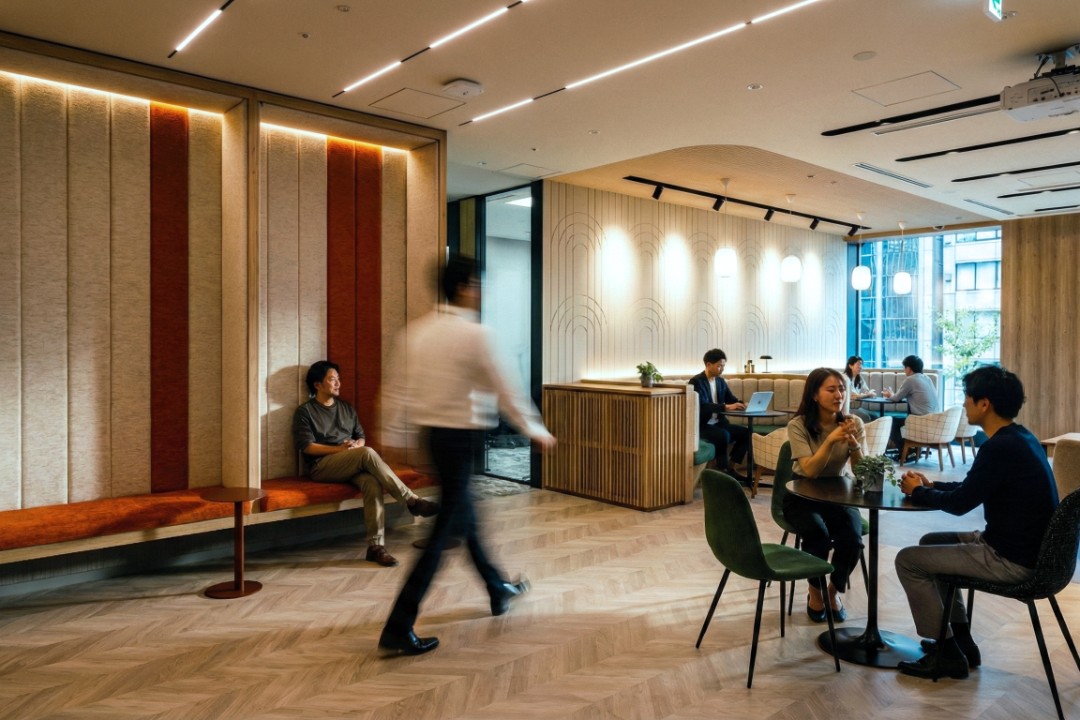How to Choose a Serviced Office for Your Startup

Zeroing in on an office space for a startup goes beyond just finding a place to work — it’s about laying the foundation for future growth. The right workspace can influence employee productivity, attract talent, and strengthen a company’s credibility among clients and investors. But committing to a long-term lease can understandably be risky for new businesses.
That’s where serviced offices come in. These fully furnished workspaces run by an office provider offer a middle ground between traditional leases and co-working spaces. Unlike conventional corporate agreements, serviced offices come with flexible terms so that startups can scale up or down based on their needs. And they provide more privacy and dedicated facilities than their more communal co-working space counterparts without the hassles of setup and maintenance.
Startup founders on the lookout for a serviced office should know that facilities like reception, IT support, and meeting rooms are a given. They also need to consider factors like location, cost, amenities, lease flexibility, and security when making their final decision.
Why Should Your Startup Consider a Serviced Office?
Startups are dynamic and often undergo rapid changes in team size and operational needs and will therefore benefit the most from a serviced office’s flexibility. Standard leases lock businesses into long-term agreements, providing them little to no wiggle room. On the other hand, serviced offices offer short-term contracts so that businesses can make adjustments effortlessly.
Then there’s the matter of cost efficiency. Leasing a regular office requires substantial upfront investment in furniture, equipment and utilities, as well as recurring maintenance expenses. Serviced offices factor in costs like service fees, utilities, and office essentials in their fixed fees, which simplifies budgeting.
Serviced offices are also your best bet if you’re looking at saving time as they provide fully equipped workspaces from day one. Startups can move in and get right to work, and avail benefits like professional reception services, high-speed internet, and on-demand meeting rooms in the process. This way, founders and employees can focus on business growth rather than office management.
What Location Factors Matter When Choosing a Serviced Office?
When it comes to choosing a serviced office, you should ensure that its location supports your company’s growth while providing convenience and credibility. Think about how accessible it is for employees and clients, what the nearby amenities are, the office’s brand image, and the local talent pool.
Proximity to Clients, Partners, and Business Districts
Being close to the main business areas helps solidify your reputation and supports client interactions. If you’re in tech, being in an innovation hub can lead to new opportunities. Media startups can benefit from a central business district location so they can be within easy reach of policymakers, advertisers, and government institutions.
Transportation Links and Accessibility for Employees
Employees who work in well-connected offices will likely spend less time on their daily commute, which could reduce stress and fatigue levels. This can have a direct impact on employee productivity, punctuality, and job satisfaction. Startups with offices near public transport and major roads, as well as car and bike parking spaces, may also be favoured by job applicants.
The Impact of a Prestigious Address on Credibility
A prime office location is key to making a strong impression on investors and partners as it conveys professionalism, stability, and trustworthiness. And since central locations are generally easier to access, it makes client visits easier, and goes a long way towards reinforcing a strong brand image.
How Do Serviced Office Costs Align With a Startup’s Budget?
Understanding cost structures of a serviced office is crucial so that you pick one that suits your budget and development plans. Some follow an all-inclusive model, where service fee covers everything from utilities to cleaning. Others may have separate charges for meeting rooms, IT support, and mail handling.
There’s also the issue of hidden fees like printing services, internet upgrades, and extended meeting room use. These charges can add up, so it’s important to read the fine print and negotiate terms upfront to prevent unexpected expenses.
Ultimately, the value of a serviced office should match your growth strategy and financial plans. While the cheapest option might limit your ability to scale up, high-end offices can strain cash flow. Striking the right balance is key.
What Essential Amenities and Services Should You Look For?
A checklist for serviced office facilities should include furniture, internet connectivity, and — in the case of startups with non-standard working hours — 24/7 access. And depending on the nature of your business, you can look into additional services that might make a big difference to employees and clients.
If you want convenience, ask whether the office you’re considering takes charge of mail handling, on-site security, and office supplies. Companies that hold in-person client interactions might favour a workplace with reception services and private meeting rooms, while those that prefer online meetings may choose one with reliable high-speed internet and IT support.
Some serviced offices even offer wellness areas, coffee lounges, and networking events, while others have cybersecurity measures to protect sensitive data. Other optional amenities can include dedicated phone lines, printing and scanning facilities, soundproof pods for private calls, nap rooms, and cafeteria services.
What Flexibility and Lease Terms Should Startups Consider?
Startups need to be agile so they can quickly adapt to rapid changes in fast-paced competitive markets. This is why they tend to favour lease flexibility. Founders who don’t want the restraints of a long-term contract should look into rolling monthly contracts or quarterly agreements.
Additionally, if your startup expands, it’s best to have the option of increasing workplace size without relocating. In fact, there are serviced offices that provide extra desks or larger suites for clients with expansion plans. Some providers also offer customisation options — think branding elements and personalised office layouts to create a unique and instantly recognisable workspace.
If you have remote team members or employees who travel frequently, consider serviced offices that provide multi-location access so that your team can work from different branches of the same provider. Businesses that anticipate downsizing or expanding staff sizes can explore hot desking or hybrid workspace models.
How Does the Office Environment Impact Your Business Culture?
The design of a workplace plays a major role in influencing work culture. In contrast to the rigid set-up of conventional offices, serviced offices tend to have open-plan layouts, ergonomic and contemporary furniture, and tech-integrated workspaces. These features are specifically built to encourage flexibility, collaboration, and cutting-edge functionality.
A professional and inspiring work environment keeps employees motivated, which is why serviced offices often have an abundance of natural light and many communal spaces to boost workplace wellness. Many of these ready-to-use spaces have a wide variety of clients, which creates opportunities for networking. Some even organise industry events to help startups connect with potential investors and partners.
What Security and Sustainability Factors Should You Check?
In today’s world, security and sustainability are increasingly important considerations for startups. A well-secured office should offer clients 24/7 access control, biometric or keycard entry systems and CCTV monitoring to prevent unauthorised access, as well as secure data management policies to protect assets and sensitive information.
Sustainability initiatives — such as energy-efficient lighting, waste reduction programs, smart climate controls, and eco-friendly building materials — contribute to a lower carbon footprint and indicate corporate responsibility. Some serviced offices hold internationally recognised green building ratings like LEED or BREEAM certifications, ensuring environmental best practices.
Finding the right serviced office impacts your startup’s growth, finances, and culture. Every factor plays a role, whether it’s flexibility and location, or amenities and security. Check out potential offices, compare cost breakdowns, and assess amenities before you sign a lease. The right space should align with your business needs, foster productivity, and provide the flexibility needed to scale.
Ready to Find the Perfect Office for Your Startup?
Selecting the right serviced office is a pivotal step toward driving your business forward. If you’re looking for a workspace that blends flexibility, professionalism, and convenience, reach out to us today. Our team will help you assess your needs, compare options, and secure an office that aligns with your growth strategy. Don’t let the selection process slow you down—act now to establish a solid foundation for your startup’s success!


